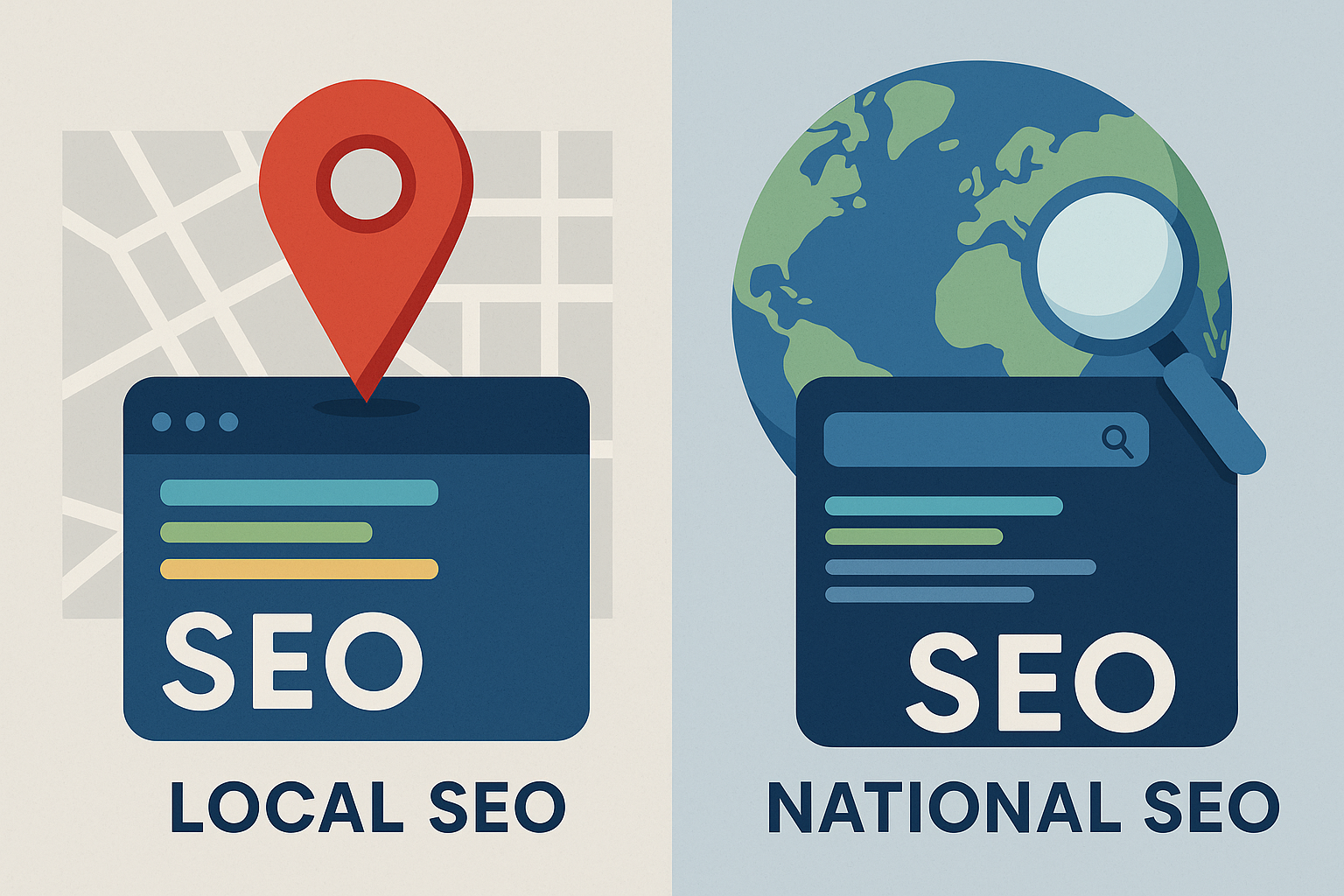Local SEO vs. National SEO: What’s the Difference and Why It Matters
If you’ve ever wondered why your website isn’t showing up when people nearby search for your services — or why your traffic doesn’t turn into leads — the problem might be your SEO strategy.
More specifically: Are you focused on local SEO or national SEO?
Because they are not the same — and if you’re a small business here in New England, confusing the two could be costing you traffic, visibility, and customers.
Let’s break it down.
What Is Local SEO?
Local SEO is all about getting found by people in your geographic area — whether they’re searching “near me,” looking on Google Maps, or trying to find services in a specific city or town.
It’s essential for:
- Contractors
- Restaurants
- Plumbers & HVAC pros
- Lawyers
- Medical/dental offices
- ANY business with a physical location or defined service area
Key features of local SEO:
- Optimizing your Google Business Profile
- Using location-based keywords (like “New Bedford roofing company”)
- Getting reviews and local citations
- Showing up in the Local Pack (the map box on Google)
Goal: Show up when someone nearby is actively looking for what you offer.
What Is National SEO?
National SEO targets a much broader audience — often across multiple cities, states, or even countries. It’s more competitive and focused on building domain authority and keyword rankings over time.
Used by:
- eCommerce brands
- SaaS companies
- National service providers
- Content-based businesses
Key features of national SEO:
- Ranking for broad, non-location-specific keywords (e.g., “best CRM software”)
- Long-form blog content and link-building
- Focused more on website structure and authority than maps or reviews
Goal: Build visibility across a wide area and rank for high-traffic, competitive search terms.
Why the Difference Matters
We see this all the time: a local business hires an “SEO expert” who focuses on national-style strategies — when what they really need is local visibility.
Here’s what can go wrong:
- You rank for keywords nobody in your area is searching
- Your Google Business Profile is neglected
- You miss out on map traffic and mobile searches
- You get site visitors from across the country… who will never become customers
Result: Low conversion rates, wasted budget, and poor ROI.
Local SEO Wins for Local Businesses
If your business depends on people in a specific town, region, or service area — your website, content, and online profiles should all be optimized to support that.
At LeadsEasy Solutions, we help small businesses across New England implement local SEO strategies that work:
- Google Business Profile optimization
- Local landing pages for different towns or regions
- Keyword research that matches real-world searches
- Structured data (schema) for local signals
- Link-building with local directories and publications
- Review generation to build trust and rankings
Which One Is Right for You?
If you’re a small-to-mid-size business serving customers in a specific area — you need local SEO.
If you’re selling online or targeting a nationwide audience — national SEO may be more appropriate.
Of course, some businesses need a hybrid approach — and that’s where a trusted strategy partner comes in.
Ready to Dominate Your Local Market?

